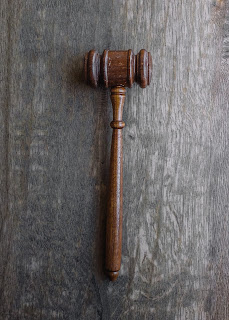Below is a listing of upcoming virtual and live CLEs that I am participating in as a presenter. Should you need CLE credits, I am hoping you might consider these CLEs.
October 22 - 10 a.m. - Wayne County Bench Bar Conference (LIVE ATTENDANCE ONLY, BUT MY PRESENTATION WILL BE ZOOMED IN TO THE EVENT)
"Back to School With Tort Talk: A Civil Litigation Update" (encore presentation)
A review of the notable civil litigation decisions from around the Commonwealth of Pennsylvania as highlighted on the Tort Talk blog presented by Daniel E. Cummins of Cummins Law.
This LIVE CLE will take place at Tick Toc's On the Terrace, 760 Terrace Street, Honesdale, PA. Although this all day CLE is a live event my presentation at 10 a.m. will be via Zoom as I am presenting at the Lackawnna Bench Bar Conference in Scranton on the same day.
Non-members are invited and welcome to attend. The cost to attend is $50. The price includes a light breakfast, lunch and the CLE credits.
To review the full Agenda of courses for this event and/or to register, please email the Chairman of the Wayne County Bench Bar, Attorney Joseph Rydzewski at joerr@poconolawyers.net. Payment must be made when you arrive at the CLE.
October 22 - Lackawanna County Bench Bar Conference (VIRTUAL)
"Best Litigation Practices in the Covid Era"
Tips for improving your practice while utilizing advanced commuication technology such as Zoom. Presented by Daniel E. Cummins of Cummins Law, Paul Oven of Dougherty, Leventhal & Price, and JP Cardoni and Leah Kane of Exhibit A. Program to be Moderated by Thomas P. Cummings of Dougherty, Leventhal & Price. This particular presentation of the Bench Bar will be at 2:15 p.m.
Free to Lackawanna County Bar Members.
Please contact Kaitlin McDonough of the Bar Association at kmcdonough@lackawannabar.org to register. Must register by Friday, October 15, 2021.
October 29 - Noon - Pennsylvania Defense Institute (Non-members welcome)(VIRTUAL)
"Back to School With Tort Talk: A Civil Litigation Update" (encore presentation)
A review of the notable civil litigation decisions from around the Commonwealth of Pennsylvania as highlighted on the Tort Talk blog presented by Daniel E. Cummins of Cummins Law.
Free for PDI Members
Non-Members welcome and invited to attend; Fee for Non-Members is $35.00.
REGISTRATION AND PAYMENT METHODS:
Complete Form and mail with check (if applicable) payable to “PDI” to: Pennsylvania Defense Institute, P.O. Box 6099, Harrisburg, PA 17112 and e-mail Registration to
cwasilefski@padefense.org or
lgamby@padefense.org.
Register online
https://us06web.zoom.us/webinar/register/WN_6nqKJwHUTdyKESaf4tlF4g and mail a check (if applicable) payable to “PDI” at Pennsylvania Defense Institute, P.O. Box 6099, Harrisburg, PA 17112.
Go to PDI website:
www.padefense.org and register using for provided on Events Page and pay via PayPal.
Upon receipt of Registration and Fee, Registrant will receive information for joining Webinar and required submission following Webinar via e-mail.
November 4 - Luzerne County Bench Bar Conference (LIVE)
"Using Social Media as a Weapon for the Plaintiff and the Defendant"
Attorney Daniel E. Cummins of Cummins Law and Attorney Jamie Anzalone of Anzalone Law will co-present and provide an overview of the law of Pennsylvania regarding the discoverability and admissibility of social media evidence in civil litigation matters. The presenters will also review how social media evidence has been used for the benefit of Plaintiffs and Defendants at trial. This particular presentation will be at 1:15 p.m.
The Fee to register for Wilkes-Barre Law Library Association Members is $49 if paid by October 26th. After that date the Fee is $69.00.
Non-members welcome and invited to attend. Fee for Non-Members is $100 if paid by October 26th.. After October 26th, that fee for non-members jumps to $125.
You can register for this CLE through the Bar Association's website HERE.









































